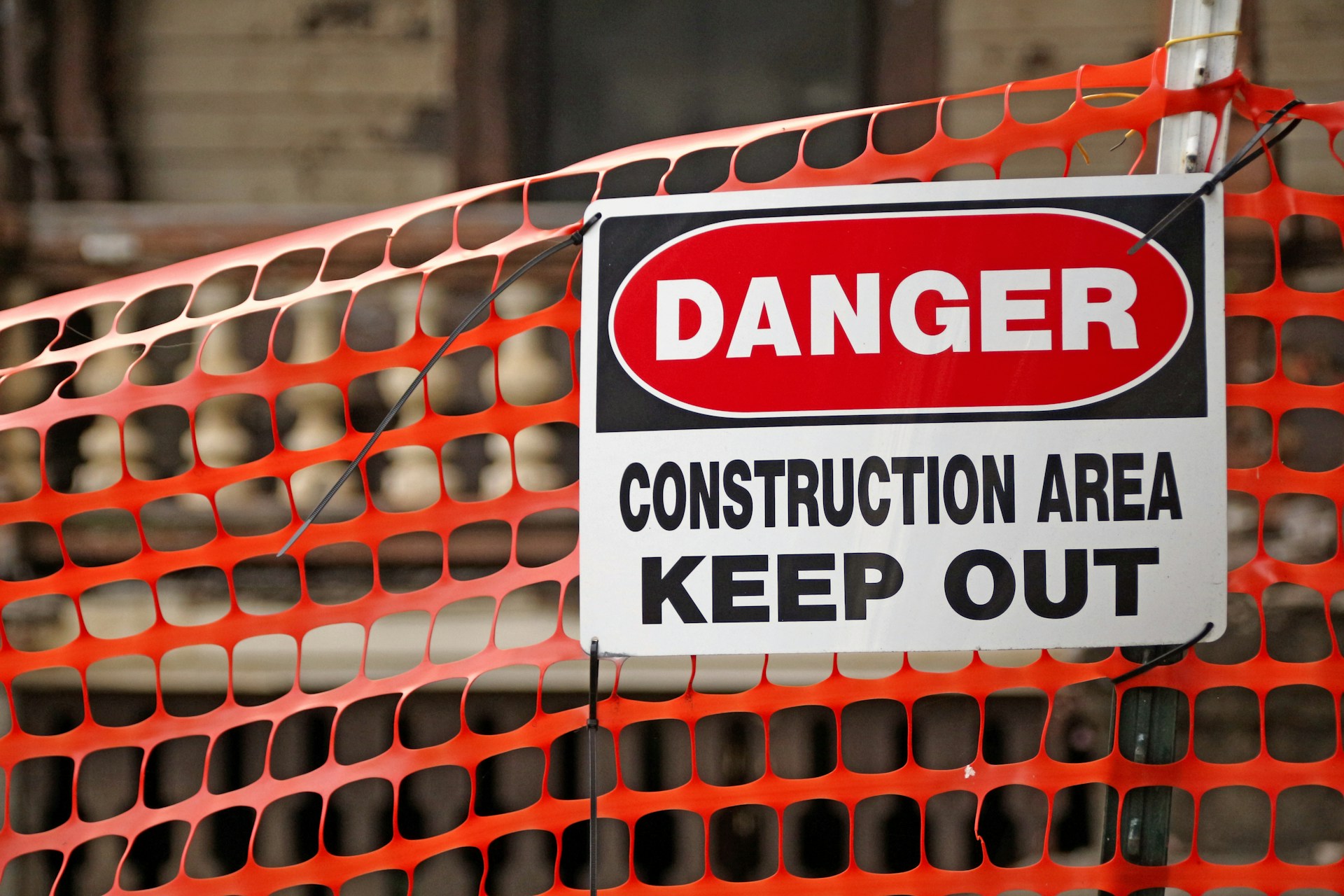Negotiating with a general contractor can make or break your construction project. Before you sit down at the bargaining table, it’s crucial to understand the landscape. General contractors operate in a highly competitive market, constantly balancing the need to win bids with maintaining profitability. With this in mind, effective negotiation begins well before the first handshake.
Your first step? Do your homework. Thoroughly research potential contractors – their credentials, track record of completed projects, and reputation in the industry. This knowledge gives you leverage and helps you evaluate offers objectively. Next, clearly define your own priorities. What aspects of the project are non-negotiable? Where do you have flexibility? Having a firm grasp of your objectives will keep negotiations focused and productive.
By understanding these dynamics and preparing strategically, you’ll be equipped to negotiate terms that set your project up for success. In the following sections, we’ll explore specific tactics to help you secure favorable contract terms while building a collaborative relationship with your chosen contractor.
What Should You Research Before Negotiating with a Contractor?

When it comes to home improvement projects, doing your homework before hiring a contractor can make all the difference. As a design-build firm, we’ve observed firsthand how proper preparation sets the stage for successful negotiations and smooth project execution. Here are some key areas to research before sitting down at the negotiating table:
Gather Multiple Estimates
We recommend getting at least three estimates from different contractors. This provides a clearer picture of fair market rates and helps identify any outliers. Don’t just focus on the bottom line – pay attention to the scope of work included and materials specified. Wildly different bids often indicate misunderstandings about project requirements, so use this opportunity to clarify expectations.
Investigate Contractor Backgrounds
Thorough vetting of potential contractors is crucial. Start with online reviews and portfolios of previous work. However, don’t stop there – reach out to past clients as references. Ask about their experience, the contractor’s communication style, and how they handled any challenges. A contractor’s track record speaks volumes about what you can expect.
Develop a Detailed Project Scope
Having a comprehensive, written project scope is one of the most effective ways to prevent misunderstandings and scope creep. We work closely with clients to document every aspect of the project, from materials and finishes to timelines and payment schedules. This level of detail provides both parties with clarity and serves as a solid foundation for negotiations.
Understand Cost Structures
Gaining insight into how contractors calculate their costs can give you an edge in negotiations. We’re transparent about our pricing, breaking down labor, materials, and overhead. Understanding these components helps identify where there may be flexibility, such as material selections or project phasing. Be wary of contractors unwilling to provide this level of detail – it could be a red flag.
By investing time in research upfront, you’ll be better equipped to negotiate effectively and choose the right contractor for your project. Remember, the goal isn’t just to get the lowest price, but to find a reliable partner who can bring your vision to life within your budget and timeline.
| Component | Description |
| Direct Costs | Funds allocated toward construction duties such as materials, labor, and equipment. |
| Indirect Costs | Costs not directly associated with construction activities, including utilities, quality control, and permits. |
| Labor Hours | Estimated costs for wages and potential overtime for the workforce involved. |
| Subcontractor Expenses | Expenses for duties passed to subcontractors, including labor, materials, and equipment. |
What Key Contract Terms Should You Focus On During Negotiations?
When negotiating construction contracts, we focus closely on several critical elements that significantly impact project success and protect our interests as a general contractor. Here are some key terms we prioritize during negotiations:
Payment Schedule and Terms
A clearly defined payment schedule is essential for maintaining healthy cash flow throughout the project. We aim to establish milestone-based payment terms that align payments with completed work. Some key elements we negotiate include:
- Specific dates or project milestones tied to payments
- Clear definitions of what constitutes a completed milestone
- The ‘pencil requisition process,’ which allows for proper review of payment applications before finalizing
- Retainage terms and conditions for release
By negotiating favorable payment terms, we can better manage our financial obligations to subcontractors and suppliers while ensuring fair compensation for work completed.
Lien Releases
Lien releases are crucial for protection against potential claims from subcontractors or material suppliers. We typically negotiate for:
- Conditional lien releases with each payment application
- Unconditional lien releases upon receipt of payment
- Final lien releases at project completion
This tiered approach helps maintain a clear chain of title and mitigates risk as the project progresses.
Project Milestones and Schedule
To avoid scheduling disputes, we advocate for explicit project milestone dates rather than vague timeframes. Key schedule elements we focus on include:
- Specific dates for major milestones (e.g., groundbreaking, substantial completion)
- Realistic timelines that account for potential delays
- Clear definitions of what constitutes substantial and final completion
Well-defined milestones help keep all parties aligned on expectations and provide a basis for tracking progress.
Change Order Procedures
Clearly documented change order procedures are essential for preventing scope creep and managing costs. We negotiate for terms that address:
- The process for submitting and approving change orders
- Required documentation and cost justification
- Timelines for review and approval
- How change orders impact the project schedule and overall contract sum
By establishing a structured change order process upfront, we can better manage project modifications while maintaining budget control.
While these terms form the foundation of a solid construction contract, each project may require additional considerations based on its unique characteristics. We approach each negotiation with a focus on creating clear, fair agreements that set the stage for successful project delivery.
What Negotiation Strategies Are Most Effective with Contractors?

Successful negotiation with contractors requires striking a careful balance between assertiveness and relationship-building. As clients, we must be clear about any concerns regarding project feasibility, timelines, or complex elements. At the same time, active listening is essential to understand the contractor’s priorities and constraints, often revealing areas where they might be open to compromise.
Rather than rejecting proposals outright, it’s more effective to present alternative solutions that address both parties’ needs. For instance, if a contractor proposes an aggressive timeline that seems unrealistic, we might suggest a phased approach with key milestones, allowing for more overall flexibility.
When it comes to budgeting, we’ve learned it’s generally wise to overestimate costs during initial planning. This provides room for counteroffers in negotiations without derailing our financial projections. While we don’t disclose our full budget, having that buffer allows us to be more flexible in discussions.
Maintaining a professional demeanor throughout the negotiation process is critical. We avoid displaying either desperation or aggression, as both can weaken our position significantly. Instead, we aim to project confidence tempered with a willingness to collaborate.
Ultimately, we’ve found that building a relationship based on mutual respect often leads to the best outcomes. When contractors feel valued as partners instead of just service providers, they’re more likely to go the extra mile to ensure project success. This doesn’t mean compromising our requirements but rather approaching negotiations with a spirit of finding win-win solutions whenever possible.
By employing these strategies – clear communication, creative problem-solving, financial preparedness, and a focus on relationship-building – we navigate contractor negotiations more effectively, setting the stage for smoother project execution.
What Should You Do After Reaching an Agreement?
Once negotiations are complete, we formalize everything in a detailed written contract that protects both parties. Our contracts clearly specify the project timeline, payment schedule, materials to be used, and any special requests. We have learned that being specific rather than vague is crucial—for example, we specify the exact paint brand and color instead of merely stating ‘paint the walls.’ We also exclude unrelated tasks to avoid any misinterpretation.
After signing, we maintain open communication with the client throughout the project. This ongoing engagement builds trust and ensures that the work progresses according to expectations. We address any concerns early through regular check-ins and site visits. Our project managers stay in close contact with clients, providing updates and promptly responding to questions.
We also recommend that clients consider consulting with their own legal and insurance advisors to review contract terms. This extra step helps ensure proper protection for all parties. While we stand behind the fairness of our agreements, we understand the value of an independent review, especially for larger projects.
Some key elements we include in our post-agreement process:
- A comprehensive punch list outlining all deliverables
- Clearly defined milestones and payment schedules
- Procedures for approving any changes or additional work
- Protocols for resolving any disputes that may arise
- Specifics on warranties and post-project support
By following these practices, we create a solid foundation for a successful project. Clear documentation and ongoing communication help prevent misunderstandings and keep work on track. Our goal is always to deliver results that meet or exceed client expectations.
| Project Timeline | Clearly specify project start and end dates, along with key milestones |
| Payment Schedule | Outline milestone-based payment terms |
| Materials Specification | Specify exact types and brands of materials |
| Punch List | Include a list of all deliverables |
| Change Orders | Detail procedures for approving changes or additional work |
| Dispute Resolution | Outline protocols for resolving disputes |
| Warranties/Support | Cite warranties and post-project support offered |
Conclusion: Securing a Fair Deal with Your General Contractor

Negotiating effectively with a general contractor requires thorough preparation, clear communication, and meticulous attention to detail. By conducting comprehensive research, focusing on key contract terms, employing strategic negotiation tactics, and properly formalizing agreements, you can establish a relationship that safeguards your interests while fostering a productive working environment.
The ultimate goal in these negotiations isn’t simply to secure the lowest possible price. Rather, it’s to achieve a fair and balanced agreement that ensures high-quality workmanship, reasonable costs, and clearly defined expectations for all parties involved. Taking the time to negotiate thoughtfully can prevent costly disputes, potentially save significant money over the course of the project, and substantially contribute to the overall success of your construction endeavor.
Remember, effective negotiation is about more than just dollars and cents. It’s about establishing a foundation of trust, aligning incentives, and creating a framework for smooth project execution. By implementing the strategies outlined in this article — from thorough pre-negotiation research to savvy contract structuring — you’ll be well-equipped to engage confidently with general contractors and secure agreements that truly serve your interests.
With these tools in your arsenal, you can successfully navigate contractor negotiations and set your construction project up for smooth progress from day one. The time and effort invested in mastering these skills will pay dividends throughout the lifecycle of your build and beyond.
To learn more about how EB3 Construction approaches contract negotiations and project management, contact our team today.




